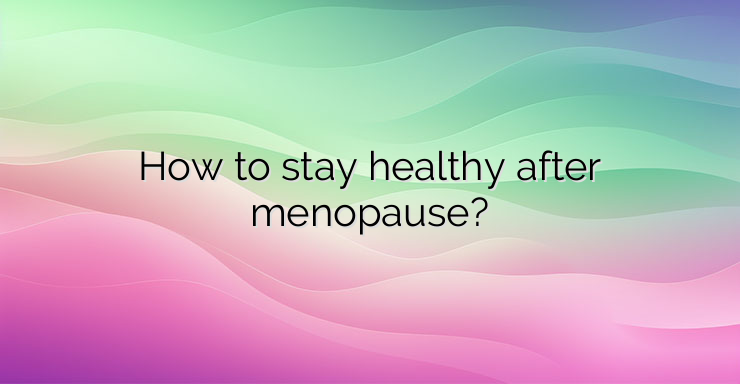The key to staying healthy and active after menopause is good nutrition and regular exercise. Nutrition after menopause As you age, your nutritional needs change. For example, before menopause, every woman should take about 1000 mg of calcium daily. After menopause, intake increases to 1200 mg of calcium per day. Vitamin D is also extremely important for calcium absorption and bone formation. Taking it can significantly reduce the risk of spinal fractures. But as with anything else, taking too much calcium or vitamin D can lead to kidney stones, constipation or abdominal pain, especially with kidney problems. The Importance of Exercise After Menopause Many women gain weight after entering menopause. This may be due to falling estrogen levels. Increasing physical activity can offset this weight gain. Regular exercise benefits the heart and bones, helps with weight control, and can improve mood. Women who are not physically active are more likely to have heart disease, obesity, high blood pressure, diabetes and osteoporosis. Also, women with a sedentary lifestyle can suffer from chronic back pain, insomnia, poor circulation, muscle weakness and depression. Aerobic activities such as walking, jogging, swimming, cycling and dancing help prevent some of these problems. This also helps to increase the levels of HDL cholesterol (the so-called good cholesterol). In postmenopausal women, moderate exercise helps preserve bone mass in the spine and prevent pathological fractures. Hormones called endorphins are released in the brain during exercise, which helps improve mood. It also benefits the body in combating stress. Sex after menopause Some women lose interest in sex during and after menopause. Menopausal symptoms such as dryness in the genital area and lower estrogen levels can further negatively affect interest in intercourse. Estrogen creams and lubricants can restore elasticity and prevent dryness, which in turn will make intercourse more enjoyable. Women who still have periods (even if irregular) should continue using various forms of birth control. A few tips for health and happiness after menopause: If you are considering taking hormone replacement therapy, you need to discuss the benefits and risks with your gynecologist. Don’t smoke. Smoking is a major risk factor for heart disease. Exercise regularly. Even moderate exercise, such as walking for half an hour 3 times a week, is beneficial. Maintain a healthy weight through a balanced, low-sugar diet. Control high blood pressure with medication or lifestyle changes. This reduces the risk of heart disease.Reduce stress through relaxation techniques or regular exercise.


Leave a Reply